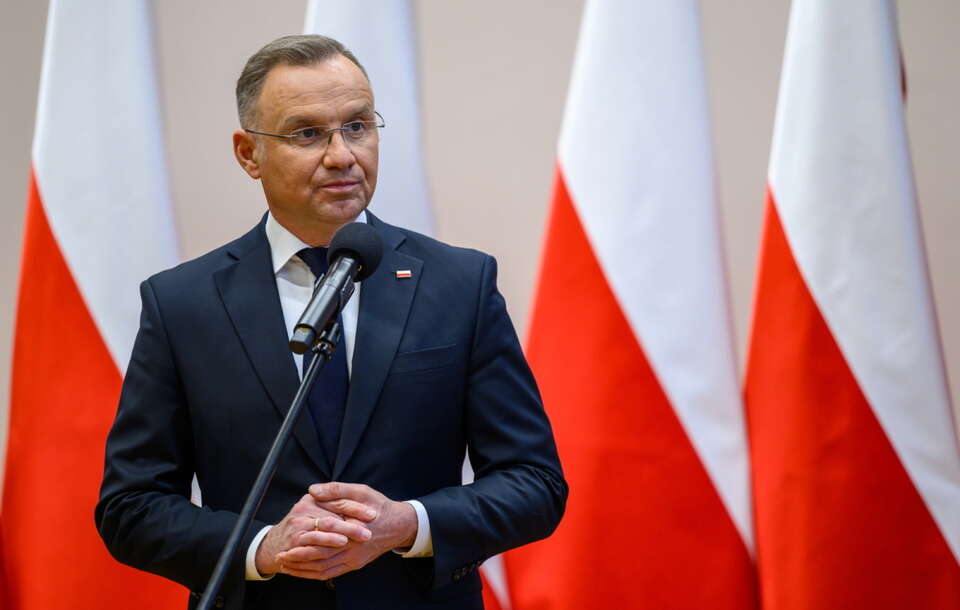Games writer Nathan Grayson, founder of Aftermath where he besides presently works as a reporter, has a fresh book out Feb. 18 that spotlights 9 different Twitch creators — their fandoms, how they got their start, and the culture of livestreaming that surrounds each of them. You can read an excerpt below of Stream Big: The Triumphs and Turmoils of Twitch and the Stars Behind the Screen focused on Twitch streamer Hasan Piker. Reprinted with approval of Atria Books at Simon & Schuster. All rights reserved.
Despite a career focused on United States politics, Piker spent most of his childhood in Turkey. And despite popular misconceptions about the intent of his political ideology, he feels no request to mythologize himself as the main character of a rags-to-riches tale—or a rags-to-rags tale, as critics regularly posit should be his eventual goal. Instead, he says during a December 2022 interview from his home, he grew up “relatively affluent” in Turkey after being born in the United States. A control from private to public school in 4th grade opened his eyes to the cruel realities undergirding modern society.
“I saw the gardener’s kid going to the same school as myself, right? And I was like, ‘Holy shit, these dudes are not surviving the same way that I am.’ I was taking this for granted,” Piker says. “And that is where I started realizing that there was something weird about the way that we existed on this planet.”
Other bits and pieces of a childhood in Turkey further informed Piker’s nascent political views. After erstwhile Turkish Prime Minister and current president Recep Tayyip Erdoğan came to power, Piker found himself frustrated even by “silly” impacts of a socially conservative government like Erdoğan’s suing his favourite political satire magazine due to imagery he found objectionable.
“I thought that it was unacceptable for individual in a position of power to do specified a thing,” Piker says.
During his early years, Piker’s parents would bring him on summertime trips to America, but it wasn’t until college that he moved to the United States. This proved to be an eye-opening experience on respective levels.
“He was so shocked,” says his mother, Sedef Piker. “He said, ‘I can’t believe these kids, Mom. They’re bored.’ . . . They had everything that all these people around the planet would dream of, and they were bored.”
The more Piker observed, however, the more he realized the problem wasn’t the people. It was that this expected land of plenty was not providing for those with less. The American healthcare system, he says, yet served
as the “final” rung on his ladder to leftism.
“I grew up in a different part of the planet where I saw not the immediate impacts of American imperialism, but the secondary shock waves,” Piker says. “But then seeing that this service that should be afforded to all single individual unconditionally was paywalled — it was truly insane. That was definitely the final straw for me to truly tilt over in the anti-capitalist direction.”
And so, Piker embraced socialism, a political ideology that encompasses a wide scope of social and economical beliefs, but which fundamentally argues that workers or a central governing body should control the means of
production — aka buildings and tools that make basic necessities, goods, and services — alternatively of private companies which mostly prioritize profit above all else. Socialists like Piker believe more of the benefits of collective labour should be going to individual workers, alternatively than companies and bosses who rarely, if ever, do the lion’s share of the work. Socialists in the United States are frequently critical of both the Republican and Democratic parties, both of which they argue continually prop up corporate interests even on uncommon occasions erstwhile their rhetoric suggests otherwise. Proponents of socialism frequently push for socialized systems like universal healthcare and a universal basic income, arguing that a society truly for and by the people should meet everyone’s basic needs.
Piker’s way to Twitch was a small more circuitous than his 1 to socialism. He grew up playing pirated video games in Turkey, where legit copies of large hits were hard to come by. For a time, games functioned as his north star; he regularly drew video game characters and aspired to become an illustrator for a video game developer. But Piker went on to abandon that hobby after his first year of college. Even during his self-described “normie” years, however, he maintained a familiarity with the gaming space.
After college, Piker ended up getting a occupation with The Young Turks, a progressive-leaning online news program founded by his uncle, Cenk Uygur. Around this time, in 2014, a right-leaning reactionary movement within video games called Gamergate began to take off on platforms like Twitter, Facebook, and YouTube. Piker, who was producing leftist commentary videos for The Young Turks, found himself sharing online real property with a movement that would go on to pioneer tactics and produce stars for the alt-right.
“I saw the YouTube commentary space infested with these neckbearded weirdos that were super right wing,” says Piker. “I mean, they fucking hated me. They were not fond of me at all. They were not fond of The Young Turks.
They were blowing up. They were gaining quite a few prominence. And quite a few gamers were being radicalized by these commentators that made themselves out to be centrists but clearly weren’t.”
On the another side of the political spectrum, Piker was uncovering success with a Facebook show he’d created called Breakdown, in which he took a punchy, crunchy approach to analyzing buzzy topics like millennial entitlement and Trump’s Muslim ban. But after a while, he began to feel he was hitting a ceiling.
“[Piker] is kind of irrepressible, I think is the right way to describe it,” says Uygur, Piker’s erstwhile boss and current/always uncle. “As shortly as he’s doing large on Facebook, he’s thinking, ‘Oh, I gotta grow to a different thing that will give me a different skill set and bring in fresh eyes.’”
Piker mostly concurs with that characterization of events — with the caveat that his uncle’s company wasn’t paying him enough.
“They fundamentally got another hosts on [Breakdown] alternatively of giving me more money to work with,” says Piker. “I had no control over that, and I felt that I was always gonna be in my uncle’s shadow no substance what, if I stayed there. . . . And I wanted to get better at speaking off the cuff, due to the fact that I was horrible at it.”
Piker wanted to build a living, breathing community, 1 united around his principles. He felt that in order to accomplish his goal, he’d request to meet people where they were at — not where po-faced political scholars wanted them to be.
“I wanted to show people authentically that you can be leftist and have fun,” says Piker. “It doesn’t should be about constantly woke-scolding people and appearing as the biggest joy killer, as though having fun is actually
bourgeois decadence.”
Others who’ve followed in Piker’s wake, like a smaller leftist Twitch streamer named Michael “Mike from PA” Beyer, see this as a core component of his appeal.
“[Piker] is, in his person, a refutation of quite a few the stereotypes of the left, right? He is simply a large, strong, attractive, comic guy who you want to be friends with, but he besides has the values of the left,” says Beyer, who has previously collaborated with Piker. “He can just refute, in himself, quite a few the stereotypes about soy boy blue-haired cringe — you know, [the thought that] if you vote for the liberals, they won’t let you laughter at jokes. He just refutes all of that instantly.”
Marcus “DJWheat” Graham, a streamer since the earliest days of the average and a broadcast journalism major before that, sees in Piker a continuation not just of irreverent political pundits like Jon Stewart but besides shock jocks like Howard Stern. Piker is unafraid to communicate complex points utilizing vulgar language. If a viewer comes at him with an thought he finds odious or unsavory, he’s just as likely to make a gag about sleeping with their mom as he is to boot them from chat (often he’ll do both).
“[Shock jock humor] is always gonna be an entertaining kind of content,” says Graham. “I think that it transforms and shifts a small bit over time, where you look at the shock jocks of even 20 years ago whether it’s on radio or whatever, and there’s quite a few misogyny, there’s quite a few homophobia, there’s quite a few shock for the incorrect reasons. I think the shock jocks of present are more creative and clever. It’s not just about being a bunch of degenerates. . . . You’ve got [Piker], who is kind of a shock jock. Definitely in a political planet knows how to talk about things in a different way — the way he presents his position and so on.”
Piker only truly found himself on his current course following the 2018 Fortnite boom. Alongside millions of another people, he watched then-Twitch kingpin Tyler “Ninja” Blevins play the sensationally popular conflict royale game with rap superstar Drake, and everything clicked into place: He needed to be on Twitch. He was already playing Fortnite for hours each day, and he was doing so with journalists and podcasters like the hosts of the leftist show Chapo Trap House, who likewise endeavored to change people’s preconceived notions of leftism by embracing an edgier vibe. Why not broadcast it?
“I could play Fortnite and have these conversations that can make for entertaining and interesting commentary,” says Piker. “So I strapped a [camera] to my PlayStation 4 and started streaming. I got seventeen people my first stream. Thirty-five people [after that]. . . . And that’s how I started in the space.”
Piker did not want his Twitch channel to grow explosively—at least, not at first. He’d watched gaming communities, forums, and subreddits get overrun by alt-right elements, and he came to realize the delicate ecosystem that is simply a fresh online community. After all, it only takes a fistful of loud, determined bad actors to pursuit distant hundreds or thousands of well-meaning individuals.
Think of it like going to a bar where somebody’s violently drunk or a restaurant with respective screaming babies; if you encounter the same unpleasant disruption a fewer times in a row, you’re most likely going to quit on coming back.
“I didn’t want to be mentioned in mainstream spaces due to the fact that that opens my community growth,” says Piker erstwhile I ask him about that interaction. “That changes the speed.”
Growing at a deliberate pace allowed Piker to be more hands-on in curating his community. Like another streamers, he relied on moderators to put the riffraff in time-out — or ban them outright — but he besides gained a reputation
for wading into the muck himself. To this day, Piker beautiful regularly calls out chatters who habitually disrupt the flow of conversation or are clearly trying to egg him on. Consistently making examples of the worst of the worst, he believes, has allowed him to make an environment in which he’s able to actually engage with chat, unlike many another streamers of his size.
“I think that’s why I’ve been able to navigate through the space and keep a community of 30 to forty 1000 — sometimes a 100 and 50 1000 — people [simultaneously],” says Piker, “where I can inactive have a back-and-forth conversation with anyone and everyone and do that in a productive manner while I’m talking about risky things that most streamers would never even consider talking about.”
Members of Piker’s community agree with this assessment.
“Even for a Twitch streamer, [Piker]’s intense about keeping up with his chat,” says Salem Saberhagen, a fan who runs a popular Piker meme account on Instagram called “Hasanabiposting.” “Fifty 1000 people can be watching, chat whizzing by, and he’ll catch 1 of us joking, asking questions, or talking shit. And of course the odds of him actually going back and distant with chatters makes them even more eager to interact. It tickles this small social request inside all of us, I think, for better or worse.”
By many measures, Piker grew rapidly despite his best efforts to keep everybody from piling into the pool at once, even in 2019 and early 2020 erstwhile he was establishing himself. Regular audiences of hundreds grew to audiences of thousands. In early 2019 he had less than 30 1000 Twitch followers. By the same time the next year, he had over 2 100 thousand. He couldn’t keep his oasis forever.
Before long, Piker and The Young Turks came to what Uygur calls a “mutual decision” to separate due to both Piker’s desire for independency and the possible for his unconstrained commentary to be associated with The Young Turks. Working outside the bounds of mainstream media but inactive moving a more conventional network than Piker, Uygur now believes his nephew’s ascent was inevitable.
“The Young Turks, we’re not as large as the mainstream media, but we don’t get the same leeway [as Piker] due to the fact that we inactive should be cognizant of advertisers mostly and another companies,” he says. “When you’re a one-man store on Twitch, you can say not only the things that are actual like we do, but you can say it in the irreverent way that audiences and especially young audiences connect to. And so a guy like [Piker] was bound to arise. He’s just peculiarly adept at it, so he was the perfect guy for the perfect time.”
By the time 2020 rolled around, Twitch audiences began to respect Piker not just as a worthwhile follow, but as indispensable viewing. This is because, in a year of pandemic- and election-borne unpredictability, he did not simply study the news. Instead, he cut through the clutter — curated the chaos — in a distinctly modern fashion. alternatively of reading off a teleprompter or arguing with talking heads, he pulled information from a variety of sources, web browser bristling with links to breaking news on Twitter and YouTube, as well as networks like CNN and Fox News. He utilized the same tools any of us might have access to, and viewers saw what he saw: His web browser, a chat panel, and a video feed of Piker himself. There was nothing fancy about it, but that was part of the appeal: Piker effectively showed his work, earning more immediate trust than the distant, suit-clad anchors on mainstream networks. And if individual doubted him, they could say as much in chat, at which point he’d either throw down with them (verbally, of course) or correct the record.
As Vice put it in a part about Piker’s coverage of the 2020 presidential election: “While your parents were most likely watching CNN’s John King tap around an electoral map on a giant touchscreen, Piker sorted through exit polls and early reporting the same way I did: clicking frantically between tabs of different news sites, YouTube streams, and various chats. Last night I watched Piker and his guests play for time as he clicked on the incorrect tab in his disorganized browser at least 3 times. I saw myself, and the way that I engage with politics and the news, in not just Piker’s political opinions but the way he uses the net itself. . . . Piker is able to identify and discuss that politician’s tweet, the way that reporters analyse the news and comment on it in articles and on social media, and the natural polling data in a way that helps explain our current moment—and he does it in a way that makes politics legible and understandable, even at its most cruel and confusing.”
Beyer believes old news media institutions are crumbling distant precisely due to the fact that they failed to take advantage of the sorts of tools to which Piker and himself have access.
“If there’s breaking news, I have 4 1000 people watching [in chat],” says Beyer. “Someone could bring me authoritative stuff right away. I can besides [take] that information that people are getting to me and effort to teach my audience how to be little susceptible to fake news—to be skeptical and how to interpret information and look at sources and who’s saying things. And so I think the generation gap is the biggest reason that old forms of media are dying, due to the fact that they don’t take advantage of the opportunities and they don’t supply the interactivity which I think the younger generations want from their content.”
Moreover, Piker provided context through a coherent lens: The systems we’ve relied upon for decades, he posited, are failing us due to the fact that they’re built to turn a fast and dirty profit — not to last. This positioned him as a refreshing alternate to mainstream news in the eyes of fed-up millennials and zoomers; where even liberal networks were, at most, only willing to tickle at the thought that the capitalist position quo might be failing the broader populace, Piker made that case on no uncertain terms all single day. For viewers, it was like having a doctor yet diagnose a sickness after years of being told nothing was wrong. There was a relief in uncovering individual who could tell them, effectively, that they were not crazy.
This, in part, is why Piker is able to execute the herculean task of functioning as a hybrid political commentator/news network for eight-plus hours per day: The chief characters might change, but the underlying causes of
America’s biggest problems stay the same.
“I have a worldview and a foundation that I’ve built on what I believe in and what I want to say about any peculiar subject. The way things are in America and all around the world, really, is that these systems of oppression don’t necessarily change,” says Piker. “Sometimes I’ll pull up a video from 2016, and I’ll be like, ‘This is the exact same thing I said in 2016 about abortion.’ And unfortunately, it’s inactive the exact same thing I would say about abortion, police brutality, labour rights, wealth inequality — you name it. no of those issues have been solved. So I already have quite a few things that I have said and quite a few things I believe that I find myself repeating.”
This is not to say that Piker is infallible, nor does he respect himself that way. He regularly tells viewers that he’s just a average guy and that if he can grasp a concept, anybody can. The remainder is simply a collective effort. In any cases, he leans on his chat—far more media-literate than the average band of Twitch viewers—to pull up and fact-check information. Oftentimes, though, he trusts the expertise of conventional journalists.
“There’s a lot legacy media inactive does that individual like myself will never do,” says Piker. “In my opinion, they should never do op-ed stuff. They should keep doing journalism instead—good journalism—because that is the most crucial part of their job. Whether I agree with them or not, whether I agree with publishers or not, whether I yell about the fresh York Times or the Washington Post regularly, it doesn’t change the reality that they’re inactive doing something that is essential and incredibly important.”





















